Hypothyroidism is a condition in which the body produces insufficient thyroid hormones. These hormones regulate multiple bodily processes, including:
- growth
- cellular repair
- metabolic rate
Medication is the cornerstone of hypothyroidism treatment, yet consuming a balanced, nutrient-dense diet may help alleviate symptoms and support general health.
This piece describes a nutritious, balanced eating plan for hypothyroidism and highlights foods to include and those to limit.

Can certain diets benefit people with hypothyroidism?
For individuals with hypothyroidism, including those with Hashimoto’s thyroiditis, dietary strategies can offer several advantages, such as:
- supporting thyroid function
- helping to maintain a healthy body weight
- reducing symptoms associated with low thyroid function
- preventing or correcting nutrient shortfalls that can worsen symptoms
Eating approaches that may be useful for people with hypothyroidism include:
- The Mediterranean-style diet or similar patterns rich in vegetables and fruits that help limit cellular damage
- An anti-inflammatory eating pattern
- The paleo approach
- Autoimmune elimination diets, when supervised by a healthcare professional
A diet low in pro-inflammatory ingredients, added sugars, and heavily processed products can be beneficial for many people with hypothyroidism. Consuming foods high in certain nutrients may also support thyroid health.
Which nutrients matter for people with hypothyroidism?
The specific nutrients that may help vary with the type of hypothyroidism. Clinicians might suggest correcting deficiencies through dietary changes or supplements.
Iodine
Iodine is a critical mineral required for thyroid hormone synthesis, and lack of iodine can contribute to some forms of hypothyroidism. Worldwide, iodine deficiency remains a leading cause of hypothyroidism.
Although iodine deficiency is more common in many regions globally, it is less frequent in developed nations. Groups at higher risk of low iodine in developed countries include:
- people who do not use iodized salt
- pregnant people
- those following vegan diets, who may be more likely to have low iodine
However, consuming too much iodine can be detrimental, particularly for those with autoimmune thyroid conditions such as Hashimoto’s. Discuss your iodine intake with a healthcare provider if you have a thyroid disorder. They can test levels and advise on appropriate intake.
They might suggest limiting foods high in iodine, for example:
- seaweed
- kelp or dulse
- iodine-fortified salt
Selenium
Selenium is another mineral that aids thyroid hormone production and helps protect the thyroid from oxidative damage.
Research has linked selenium deficiency with the development of autoimmune thyroid disease, including Hashimoto’s.
Adding selenium-containing foods to the diet can boost selenium status. Examples include:
- Brazil nuts
- tuna
- sardines
- eggs
- legumes
Because more research is needed, experts typically do not recommend routine selenium supplementation for all people with hypothyroidism. A healthcare professional may suggest supplements for those who are deficient and unable to get enough selenium from foods.
Selenium supplements can be helpful for individuals with hypothyroidism who have a confirmed selenium deficiency.
The National Institutes of Health (NIH) has identified a daily upper limit for selenium intake in adults. Long-term high selenium consumption can cause symptoms such as:
- hair and nail loss
- diarrhea
- nausea
- skin rash
The NIH warns that excessive selenium can result in toxicity with serious, sometimes fatal, outcomes like:
- kidney failure
- heart attack
- breathing difficulties
Zinc
Zinc is also necessary for thyroid hormone synthesis and proper thyroid function.
Inadequate zinc intake can negatively impact thyroid health and general wellbeing. A zinc deficiency may contribute to or worsen hypothyroidism.
A study in which participants took supplements containing zinc, vitamin A, and selenium suggests that boosting these micronutrients may raise thyroid hormone production in people with hypothyroidism.
If you suspect low zinc, speak with a healthcare professional who can determine whether a zinc supplement is appropriate.
Other important nutrients
Other nutrient insufficiencies that can influence the onset or progression of hypothyroidism include:
- Vitamin D: Low vitamin D is associated with autoimmune thyroid conditions, including hypothyroidism. Insufficient vitamin D can impair thyroid function. While sun exposure provides vitamin D, few foods are rich in it, so supplements are commonly used.
- Vitamin B12: B12 deficiency is common among those with hypothyroidism. If levels are low, a clinician may advise eating B12-rich foods or taking B12 or B-complex supplements.
- Magnesium: Low magnesium is linked to thyroid dysfunction and hypothyroid symptoms. Increasing magnesium through diet or supplements may help improve symptoms.
- Iron: Iron deficiency or iron-deficiency anemia can impair thyroid function. Iron supplementation is often necessary to achieve and maintain adequate levels.
Additional nutrient insufficiencies that may play a role include:
- vitamin A
- folate
- calcium
Foods to limit if you have hypothyroidism
Limiting or avoiding certain foods may support thyroid function and overall health for those with hypothyroidism.
Ultra-processed foods
Ultra-processed foods can promote inflammation and oxidative stress. Oxidative stress refers to an excess of reactive molecules called free radicals that overwhelm the body’s antioxidant defenses, causing cellular harm.
These foods can raise markers of inflammation and oxidative stress. Consuming them frequently may worsen these markers and negatively influence thyroid function and overall health.
Examples of ultra-processed items to avoid include:
- processed snack foods like potato chips
- sodas and sweetened drinks
- sweetened breakfast cereals
- flavored granola bars containing preservatives
Gluten
Gluten is a group of proteins found in:
- wheat
- barley
- triticale
- rye
For people with celiac disease, gluten triggers an autoimmune response that damages the gut lining and impairs nutrient absorption. This can lead to deficiencies and inflammation that may contribute to hypothyroidism.
If you have gluten sensitivity or intolerance, healthcare professionals usually recommend a gluten-free diet. Still, consult a doctor or registered dietitian before making large dietary changes.
Goitrogens
Goitrogens are compounds found in soy products and cruciferous vegetables like cabbage and Brussels sprouts. Some research suggests they may affect thyroid hormone production.
Most people, including those with hypothyroidism, can eat moderate amounts of goitrogen-containing foods without harming thyroid health. Examples of goitrogenic foods include:
- cabbage
- Russian kale
- bok choy
- Brussels sprouts
- soy
- pearl millet
Cruciferous vegetables such as broccoli are relatively low in goitrogens, and cooking goitrogenic foods reduces their activity, making them safer for people with hypothyroidism.
You may wish to limit frequent consumption of large amounts of raw cruciferous vegetable juice.
Nevertheless, a study suggests these foods may not have the detrimental effects on thyroid function that earlier research indicated. Consult your healthcare provider before cutting foods from your diet.
Foods to include if you have hypothyroidism
Following a diet rich in wholesome, nutrient-dense foods can support overall health and lower the risk of conditions associated with hypothyroidism, such as:
- heart disease
- obesity
- type 2 diabetes
A fiber-rich diet can also help reduce constipation, a frequent symptom of hypothyroidism.
Consider adding these nutrient-packed foods to your meals:
- Fruit: berries, apples, peaches, pears, grapes, citrus, pineapple, or bananas
- Non-starchy vegetables: leafy greens, artichokes, zucchini, asparagus, carrots, peppers, spinach, or mushrooms
- Starchy vegetables: sweet potatoes, potatoes, peas, or butternut squash
- Lean fish, eggs, meat, and poultry: fish and shellfish, eggs, turkey, or chicken
- Healthy fats: olive oil, avocados, avocado oil, coconut oil, unsweetened coconut, or full-fat yogurt
- Whole grains: brown rice, rolled oats, quinoa, or brown rice pasta
- Seeds, nuts, and nut butters: almonds, cashews, macadamia nuts, pumpkin seeds, or natural peanut butter
- Beans and lentils: chickpeas, kidney beans, or lentils
- Dairy and nondairy alternatives: coconut milk, cashew milk, coconut yogurt, almond milk, unsweetened yogurt, or cheese
- Spices, herbs, and condiments: spices like paprika, saffron, or turmeric; herbs such as basil or rosemary; and condiments like salsa or mustard
- Beverages: water, unsweetened tea, coffee, or sparkling water
Some people with hypothyroidism may find it helpful to avoid foods they are sensitive to, for example gluten or dairy.
When possible, consult a registered dietitian who can help identify foods to limit or avoid and create a balanced meal plan that preserves nutrient intake without unnecessary exclusions.
Diet and thyroid medication
Take your thyroid medication on an empty stomach for optimal absorption. Avoid foods, beverages, and supplements that could interfere with medication uptake. Recommendations commonly include:
- taking thyroid drugs like levothyroxine at least 30 minutes before breakfast or 3 to 4 hours after dinner
- taking medication on an empty stomach
- waiting at least 30 minutes before consuming anything other than water, including caffeinated drinks, which can alter absorption
- avoiding thyroid medication within 4 hours of iron or calcium supplements
Sample meal plan
Every person with hypothyroidism has unique dietary and health needs. Calorie requirements depend on factors such as:
- age
- activity level
- sex
- height
- whether you aim to lose or gain weight
This general meal plan illustrates how nutrient-rich meals might look for someone living with hypothyroidism.
Monday
- Breakfast: egg and spinach omelet with half an avocado and a bowl of berries
- Lunch: a large green salad with chicken, beans, and pumpkin seeds
- Dinner: stir-fried shrimp and vegetables served with brown rice
Tuesday
- Breakfast: chia pudding with almond butter and berries
- Lunch: grilled salmon salad
- Dinner: fish baked with lemon, thyme, and black pepper served with roasted vegetables and a baked potato
Wednesday
- Breakfast:egg and veggie muffins with a side of fruit
- Lunch: Mediterranean quinoa salad with chickpeas, vegetables, and feta
- Dinner: shrimp skewers and a salad
Thursday
- Breakfast:spinach, chickpea, and sweet potato breakfast hash
- Lunch: chicken salad with fresh vegetables and fruit
- Dinner:butternut squash and lentil curry
Friday
- Breakfast: protein berry smoothie made with vanilla pea protein, natural peanut butter, and frozen mixed berries
- Lunch: a large green salad with chicken, fresh vegetables, beans, and pumpkin seeds
- Dinner:stuffed peppers
Saturday
- Breakfast: egg, mushroom, and zucchini frittata
- Lunch:Mediterranean tuna and quinoa salad
- Dinner: brown rice pasta with chunky tomato sauce and chicken meatballs
Sunday
- Breakfast:blueberry protein pancakes
- Lunch:fish taco bowls
- Dinner:sweet potato turkey chili
The bottom line
There is no single “best” diet for hypothyroidism, but combining appropriate medication with a nutrient-rich diet can help manage symptoms, support thyroid function, and enhance overall wellbeing.
Individuals have unique dietary needs, yet many with hypothyroidism benefit from eating a variety of whole, nutrient-dense foods such as vegetables, fruits, nuts, and fish.








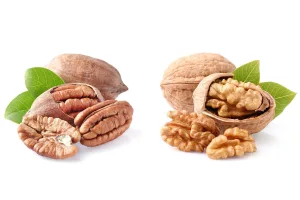
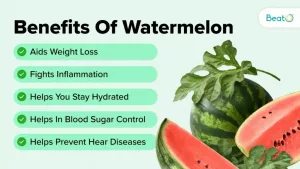








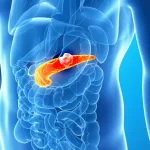

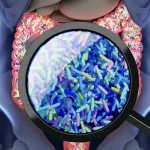

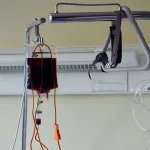
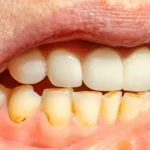

Leave a Reply
You must be logged in to post a comment.